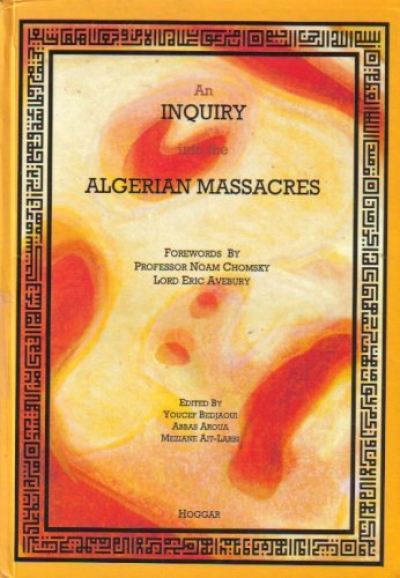



There is a frightening tendency in the US to target vulnerable minorities for cheap political gain and quick fame. American politicians of various stripes also use scare tactics to target vulnerable groups to achieve their nefarious designs.
In Part 1 of his analysis of the Islamic political and decision-making apparatus, Dr. Perwez Shafi, a director of ICIT stationed in Pakistan, offers some thoughts on the question of legitimacy and its relationship to political and social change brought about by a revolutionary Islamic movement.
In October 2010, the ruling regime in Azerbaijan banned hijab in public schools and revived an unprecedented socio-political activism of the Islamic movement. The mobilization is not only domestic, but also international. For the first time an international conference on an Islamic issue in Azerbaijan was organized.
After Tunisia and Egypt comes Bahrain and Yemen. Add to this popular wave of opposition the civil stirrings now observable in Algeria, Morocco, Jordan and Syria. This places us in front of an exhilarating arousal of people who have been dormant for decades, indeed centuries, when it comes to their own republican dynasties and monarchies.
"In Azerbaijan the government has never arrested leaders of secular political parties. However, the IPA leadership was imprisoned on numerous occasions without any legal basis."
Deep down inside the recesses of the Islamic movement there is what one may call a dichotomy — two mutually exclusive subclasses of the worldwide Islamic movement. One of them is centered on Islamic Iran and the other around what is today called “Saudi” Arabia.
No matter what the exact outcome of recent events in Tajikistan and Azerbaijan, one thing is clear: Islamic revival in the former Soviet Union is gaining momentum.
There was a crucial National Security Council meeting due to take place in Ankara that day. When he was informed about the incident, Mr. He collected some of the fragments while listening to testimonies from people in the mosque
Applying secular perspectives, derived from the Western notion of party politics, on measuring the power of the Islamic movement will never produce accurate results. Just like applying secular methods of pure party politics will never bring a desired result for an Islamic movement.
Almost every statement in the above paragraph, except perhaps for the simple statement of fact with which it starts, could prove the subject of heated debate.
The US, UK, Fatah and the secular tribal dictatorships in the Arabian world cannot use Islam to discredit Hamas because the Muslim masses judge individuals, organizations and states based on Islamic principles...
The key objectives of the Islamic movement are the reassertion of Islamic values in Muslim societies, and the establishment of Islamic states in place of the corrupt, self-serving regimes that currently predominate in the Muslim world...
Like so many activists and institutions in the Islamic movement, we at Crescent International take the unity of the Ummah as a basic assumption and premise of everything that we do. As we have so often affirmed, the understanding that we all have in common as Muslims far outweighs our many differences.
June 3rd marks the 21st anniversary of Imam Khomeini’s passing into heavenly company. Amid his many achievements was the success of the Islamic Revolution in Iran, establishing the first Islamic state in modern times...
Democracy is undoubtedly the most commonplace and widely accepted political concept in the modern world. It is barely an exaggeration to say that it has achieved the status of a universal myth; very few people in the world dare challenge the principles associated with it, and most accept it...
Even during his time, the independence movement was not monolithic. The Islamic resistance movement under Sheikh Shamil was composed of various ethnic and tribal interests with shifting allegiances..
That sense of unity was based on a common faith of course, but was supported also by a number of other factors that have been lost...
1AN ENQUIRY INTO THE ALGERIAN MASSACRES edited by Youcef Bedjaoui, Abbas Aroua and Meziane Ait-Larbi. Pub: Hoggar Books, Geneva, Switzerland, 1999. Hbk: UK24.00 (UK); pp: 1,473.
Muslim political thought needs to be realigned to the Sunnah and Sirah of the Prophet (s). In Part II of his essay, Zafar Bangash, Director of the Institute of Contemporary Islamic Thought, looks at the consolidation of the Islamic power base in Madinah and the ideological, socio-political, and economic challenges it had to survive and ultimately overcome...
Muslim political thought seems to have drifted from the teachings of the Qur’an, and the Sunnah and Sirah of the noble Messenger of Allah (s). In Part I of this essay, Zafar Bangash, Director of the Institute of Contemporary Isla-mic Thought, places it back in the Sirah to enable the Islamic movement to transform wayward Muslim societies.

